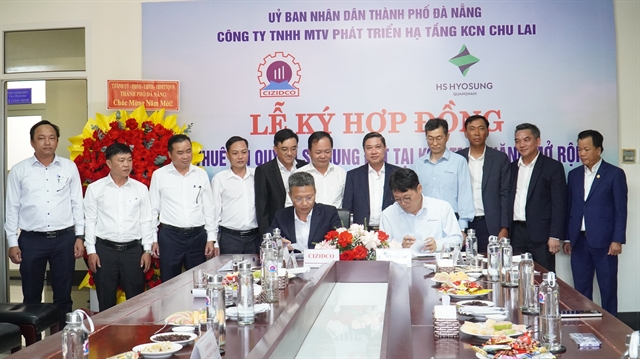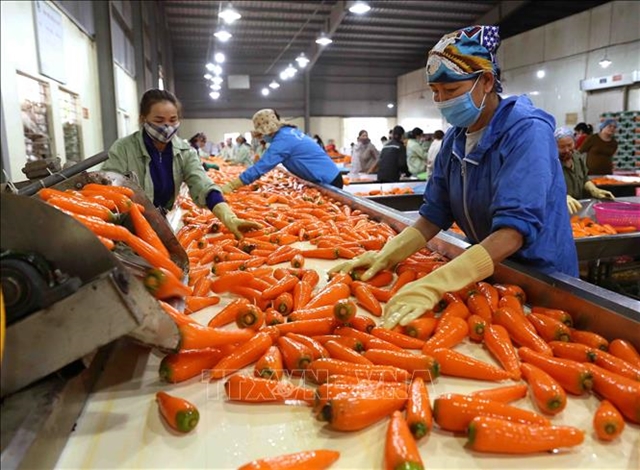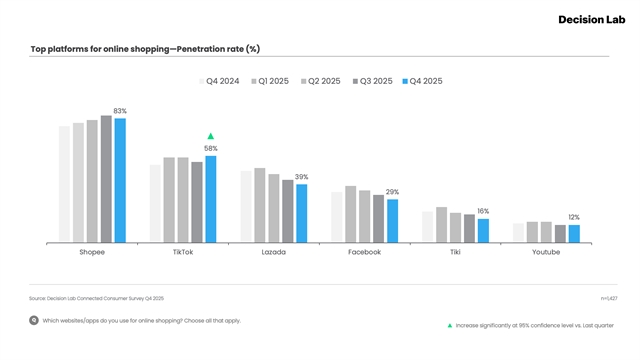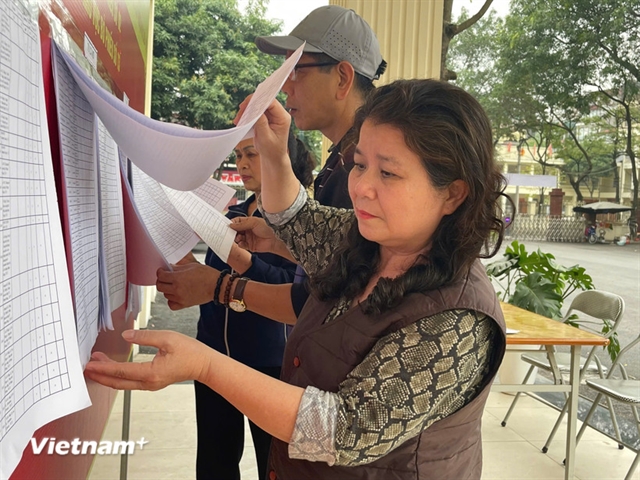 Economy
Economy


|
| By 2030, more than 70 per cent of major agricultural processing centres will adopt medium to high-level technologies. — VNA/VNS Photo |
HÀ NỘI — Việt Nam aims to develop a modern and sustainable farm produce processing system, making the country one of the world’s top ten agricultural processing hubs by 2030.
This goal was stated in the Government’s Decision 858 signed by Deputy Prime Minister Lê Văn Thành approving Việt Nam’s strategy on agricultural mechanisation and development of the agricultural, forestry and fishery processing industry until 2030.
Under this strategy, Việt Nam's mechanisation rate by 2030 would be over 70 per cent for crops, 60 per cent in animal husbandry and 95 per cent in aquaculture.
Furthermore, the growth rate of value-added products in the agricultural processing industry would reach an annual average of 8 per cent until 2025 and 10 per cent until 2030.
By 2030, more than 70 per cent of major agricultural processing centres will adopt medium to high-level technologies, while 60 per cent of Việt Nam's agricultural export staples will be processed products.
The Government eyes the establishment of major agricultural corporations with international-level financial capability and corporate governance; and industrial clusters for processing farm produce linking with concentrated material regions and distribution networks.
To carry out this strategy, the Government would continue to refine institutions and regulations, including regulations on land management, policies and mechanisms on cooperation among provinces/cities and Government agencies in mass agricultural production.
Tax incentives for the agricultural processing sector, and machinery, equipment and technology in agriculture will be proposed to be amended when the National Assembly reviews the Law on Taxation.
Technological advancements are expected to be applied in the farm production process, along with incentives helping train a high-quality workforce for the mechanisation of agriculture.
The banking sector is responsible for providing preferential loans for agricultural development, especially for projects that form large-scale farm produce processing, storing, and distributing centres.
The Ministry of Agricultural and Rural Development would restructure concentrated agricultural production regions according to three groups of national, provincial and local key products based on the advantages of each region.
The ministry is tasked with creating favourable conditions for mechanisation application and development of farm produce processing; and strengthening cooperation in agricultural production and distribution, with businesses being key in the value chains.
In fact, many enterprises in the agricultural product processing industry are facing a lack of regions with concentrated raw materials for processing activities, leading to difficulties in purchasing raw materials that reduce the quality of input materials and finished products.
In addition, Ngô Quang Tú of the Department of Agricultural Product Processing and Market Development under the Ministry of Agriculture and Rural Development, said that the seasonal characteristics of farm produce, and small and dispersed farming areas led to a lack of raw materials for production. — VNS




